The UMKC Trustees and School of Humanities and Social Sciences are proud to introduce the Marilyn T. and Byron C. Shutz Lecture Series. This annual series hosts lectures, seminars and workshops in fields such as creative writing, literature and art history.
Follow us on Facebook and Instagram or join our mailing list for the latest announcements and updates.
Upcoming Events
A Gleam in the Forest: Meaning and Material in Maya Color

Presenter: Stephen D. Houston, Dupee Family Professor of Social Sciences and Professor of Anthropology at Brown University
When: Friday, Feb. 6, 6:30-8:00 p.m.
Where: UMKC, Miller Nichols Learning Center auditorium, room 151
Colors alone or in combination had profound meaning for the ancestral Maya. They also had a history of use and a rich vocabulary to describe their many nuances. This talk explores a world where color invoked perceptions of materials, directions, and the bold palette of a natural or built setting.
Stephen D. Houston, a specialist in Maya civilization, serves as Dupee Family Professor of Social Sciences at Brown University and Chair of the Senior Fellows, Pre-Columbian Studies, Dumbarton Oaks. A MacArthur Fellow, Houston gave the 72nd Andrew W. Mellon Lectures at the National Gallery of Art and was awarded, by the President of Guatemala, the Order of the Quetzal in the grade of Grand Cross, that country’s highest honor. He is also lead author on a standard book about Maya color, Veiled Brightness: A History of Maya Color (U of Texas Press, 2009).
This lecture is organized in conjunction with a two-day symposium on the theme of "Painted Worlds: Color and Culture in Mesoamerican Art." The schedule can be found here: https://go.umkc.edu/painted-worlds
Register for Free HerePrevious Lectures in 2025
Video recordings are available for many of the lectures on this page. Visit our Past Events page for a full list of archived presentations.

Presenter: Filmmaker and visual artist Sky Hopinka and film historian Joanna Hearne, Jeanne Hoffman Smith Professor of Film and Media Studies at the University of Oklahoma
Powwow People (2025) is a documentary grounded in the rhythms, relationships, and lived experience of a contemporary Native gathering. Rather than entering as outside observers, the filmmakers organized the powwow itself, inviting dancers, singers, vendors, and community members to participate in the making of this film. Structured around the arc of a single day, the film follows four central figures, drawing the viewers into the textures, movement, and collective presence of the powwow. The documentary is both a reflection of a beloved and complicated community and a gesture toward the continuities of Native life. The short Sunflower Siege Engine will also be screened.
Sky Hopinka (Ho-Chunk Nation/Pechanga Band of Luiseño Indians) was born and raised in Ferndale, WA, and spent a number of years in Palm Springs and Riverside, CA, Portland, OR, and Milwaukee, WI. In Portland, he studied and taught Chinuk Wawa, a language indigenous to the Lower Columbia River Basin. His video, photo, and text work centers around personal positions of Indigenous homeland and landscape – designs of language as containers of culture expressed through personal and non-fictional forms of media.
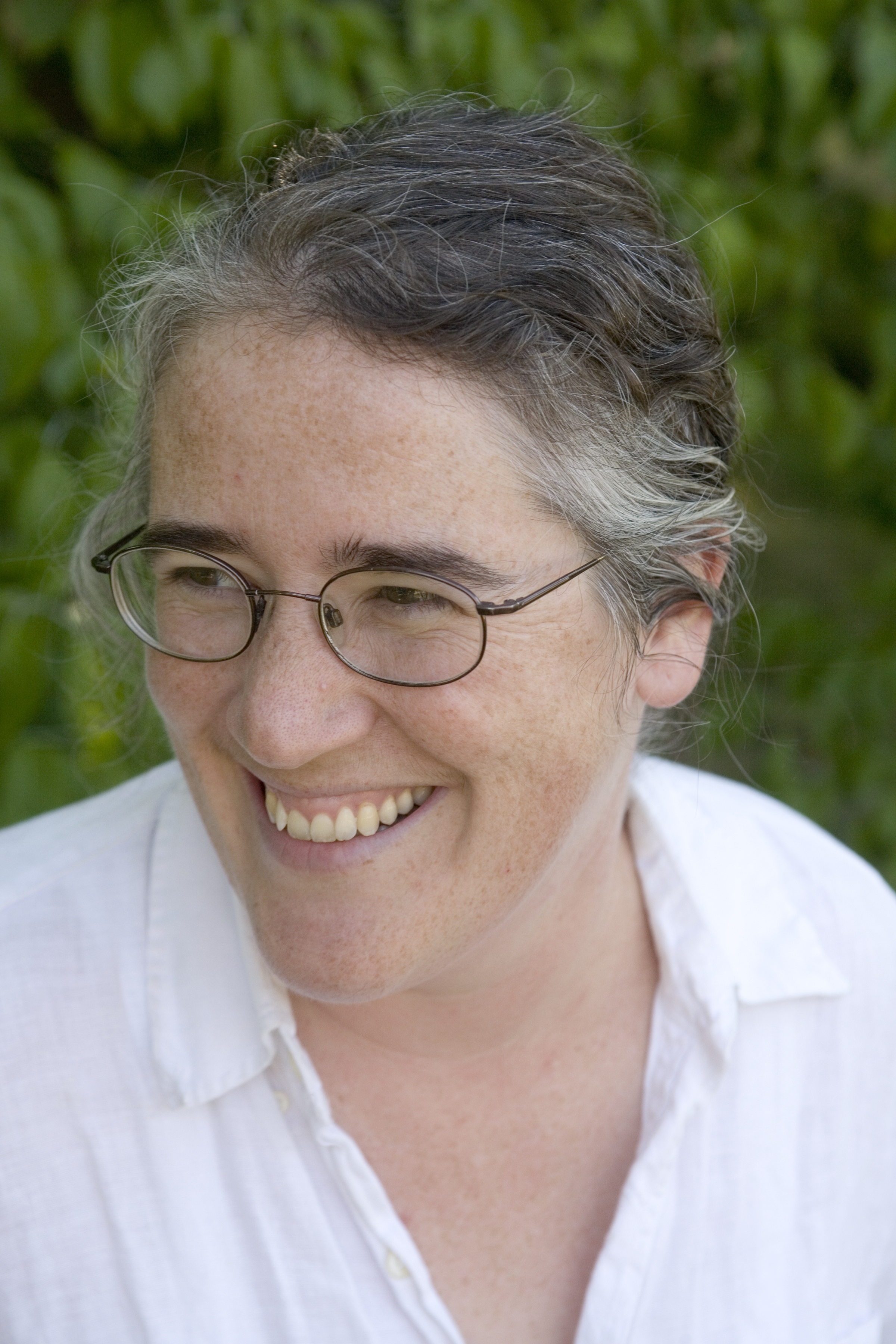
Presenter: Joanna Hearne, Jeanne Hoffman Smith Professor of Film and Media Studies at the University of Oklahoma
Indigenous makers have been vital creative catalysts in digital production, using technology as a tool for storytelling, activism, and cultural continuity. In this presentation, Hearne will explore the power of short-form media in Indigenous film, video, and animation history. She will be highlighting Indigenous filmmakers' works, as well as their power and presence in the media landscape.
Joanna Hearne is the Jeanne Hoffman Smith Professor of Film and Media Studies at the University of Oklahoma, where her work spans Native American and global Indigenous media studies, archival recoveries of Indigenous presence in cinema history, and contemporary digital media, digital storytelling, and animation. Her books argue for the centrality of Indigenous images and image-making to American film history. She is the author of Native Recognition: Indigenous Cinema and the Western (SUNY Press, 2012) and Smoke Signals: Native Cinema Rising (University of Nebraska Press, 2012). She is also the co-editor of the essay collections ReFocus: The Films of Wallace Fox (Edinburgh University Press, 2022) and By Their Work: Indigenous Women's Digital Media in North America (University of Minnesota Press, 2025).

Presenter: Gloria Sutton, professor at Northeastern University
This talk traces the stealthy intrusion of artificial intelligence in everyday imaging apps that make distinctions between human and computer vision more difficult to discern. Aimed at a broad humanities audience, Pattern Recognition connects digitally-born artworks and the mass digitalization of analog artworks to Art History’s own unresolvable conflict with experiencing works of art simultaneously in real life and through reproductive image surrogates including prints, drawings, photographs, models and slides.
Gloria Sutton is Associate Professor of Contemporary Art History at Northeastern University. Her scholarship has been supported by The Andy Warhol Foundation, the Terra Foundation for American Art, and the Getty Research Institute. She has been a scholar-in-residence at Harvard University’s Carpenter Center for the Visual Arts. Dr. Sutton served as the inaugural editor of the College Art Association’s Art Journal Open and was a founding board member of Rhizome.org.
Becoming Inevitable: Culture Work for the Resistance
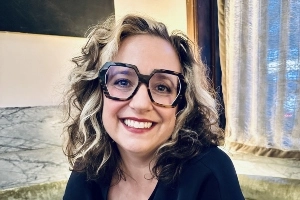
What does it take to persist and resist in today's world? How do we remain creative, adaptable, and hopeful amidst atmospheres of unfreedoms? Join writer and curator Laura Raicovich as she discusses the importance of art and cultural work in our times, and why cultivating the imagination is essential to a more just society.
Laura Raicovich is a New York City-based writer and curator known for her dedication to equitable cultural production. Her book, Culture Stike: Art and Museums in an Age of Protest, was published by Verso in 2021. She was President and Executive Director of the Queens Museum from 2015 to 2018 and in 2020 served as Interim Director of the Lesley-Lohman Museum of Art. She has recently co-founded The Francis Kite Club, an East Village NYC bar and collaborative space, and curated the first Counterpublic Convening, CIRCUS OF LIFE, in St. Louis, MO.

Esther Margolis is one of the most knowledgeable and experienced professionals in book publishing, having a career in the book world that spans more than six decades, and as the marketing consultant for major film studios for two decades. Through her insider perspective, Esther will recount the functioning of book publishing since the 1960s, including changes relating to mass market and trade paperbacks, film adaptations, publicity/advertising, agents/editors, and cross-media marketing. Come hear the story of the dramatic changes in the book and film industries over the last half-century from a leading insider.
Esther Margolis initially made her mark at Bantam Books, which she joined as a promotion assistant in 1963. Over the next 17 years, she became Bantam’s first Publicity Director, first woman Vice President, first Senior Vice President division head for marketing, publicity and communications worldwide and one of its top five officers. She became, for over 16 years, the book publishing consultant for Columbia Pictures/ Sony Entertainment, among other film and production companies. After 26 years, she sold the majority assets of Newmarket Press to HarperCollins and continued there as the imprint’s executive editor for several years, focusing it on books in film and entertainment. She left Harper in 2014 to re-establish her independent company, Newmarket Publishing Management, to agent, package, and consult on fiction and nonfiction trade and custom books, publishing, editing, marketing, publicity, and cross-media strategies worldwide. She is based in New York.
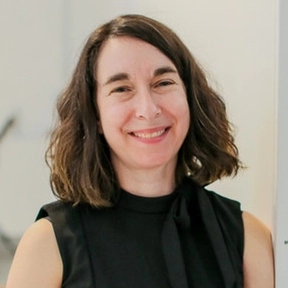
Robin Silbergleid is the author of the memoir Texas Girl and The Baby Book: Poems, as well as co-editor of Reading and Writing Experimental Texts: Critical Innovations. Additionally, with collaborators from The ART of Infertility, she co-edited Infertilities, A Curation, published with Wayne State University Press, which was honored with a Midwest Book Award. Born and raised in the Midwest, she currently lives in East Lansing, Michigan where she is Professor of English at Michigan State University.

Laura Portwood-Stacer will join registered UMKC faculty and graduate students virtually to discuss two topics: “How to Land a Scholarly Book Contract” and “How to Write an Outstanding Proposal.” Lunch will be provided by Café (the Center for Advancing Faculty Excellence) between the two sessions for those who attend in person.
As a publishing consultant and developmental editor for academic authors, Laura Portword-Stacer dispenses advice about editing and publishing on Twitter and Medium as @lportwoodstacer and through my Manuscript Works Newsletter. Her second book, THE BOOK PROPOSAL BOOK: A GUIDE FOR SCHOLARLY AUTHORS, was published by Princeton University Press in 2021. Before starting her consulting business, Portwood-Stacer was a scholar and academic whose research focused on lifestyle choices and how they define, restrict, and empower us.
One in six families struggles with infertility, according to the CDC. Yet infertility and reproductive loss are often not seen or memorialized in mainstream culture or the art world. Despite the growth of online support networks and celebrity testimonials, infertility has long remained a source of stigma or secrecy in many communities. Treatments have also long been associated with significant physical and financial barriers, and patients now have reason to fear new political and legal hurdles. A 2024 Alabama Supreme Court decision that defined frozen embryos as legally equivalent to living children temporarily halted IVF (in vitro fertilization) treatments in the state and suggested the extent of potential future threats to fertility care across the United States since the overturning of Roe v Wade. Since that ruling, the politicization of “pro-family” rhetoric has reached an all-time high, with presidential candidates fielding questions related to protecting IVF. Through these moments, a new awareness situating infertility as a reproductive justice issue has emerged.
In light of these developments, this talk focuses on the experiences of reproductive loss and infertility and the role of the reproductive arts. Featuring panelists who contributed to the edited collection, Infertilities, a Curation, attendees will learn how personal engagements with artistic making can be a source of personal healing, community building, and advocacy when discussing infertility and reproductive grief. Whether attendees come to this talk as someone personally affected by infertility or someone who wants to learn more about the experiences of inpiduals facing reproductive loss, this talk invites participants to consider how creative practices can aid in efforts to heal inpidual traumas and the role artists can play in advocating for social justice issues related to health and medicine.
Maria Novotny is an Associate Professor of English at the University of Wisconsin-Milwaukee. Drawing on a reproductive justice framework, she writes about reproductive advocacy, in particular infertility and recurrent reproductive loss. Her co-edited collection Infertilities, A Curation, published by Wayne State UP, portrays the ranging experiences of infertility in art and writing. She also serves as the Co-Director for The ART of Infertility, which is an arts-based infertility storytelling project.

Join the Shutz Lecture Series for a lecture and screening from award-winning film director, producer, and screenwriter Wendy Jo Carlton. Her talk will focus on her work creating authentic fiction films and television as a queer midwestern artist making independent work. Wendy Jo just completed production on her fourth feature film - Lucy is a Loser, an independent feature film about the healing power of weirdness, music, human touch, and other vibrations. Her works have screened internationally, including at Sundance, The AFI, on PBS, Outfest, Women in the Director’s Chair, and the Vancouver, London, Chicago, Austin, and San Francisco Lesbian Gay Film Festival among others. Her film Jamie and Jessie are Not Together was called the first lesbian RomCom musical, and rated as one of the “Top 100 Lesbian Movies of All Time”. Her other features can be viewed on Netflix, Hulu, AppleTV, and Amazon Prime. Carlton was also an Associate Producer on the award-winning documentary, Circus of Books, on Netflix (2021). Her award-winning lesbian web series, Easy Abby, has received over 100 million views online. A first-generation college graduate, Wendy Jo founded a media literacy film program for teen girls called Chicks Make Flicks, before earning an MFA in Film from the University of Illinois Chicago.
Wendy Jo directed her first feature, Hannah Free, starring Emmy-winner Sharon Gless, in 2009. Her second feature, Jamie and Jessie are Not Together, is said to be the first lesbian RomCom musical, with film critic Roger Ebert giving it a glowing review, and AutoStraddle.com lists Jamie and Jessie are Not Together as one of the “Top 100 Lesbian Movies of All Time”. Carlton’s third feature, Good Kisser, debuted on Netflix and Hulu and is now on AppleTV and Amazon Prime.
Carlton was an Associate Producer on the award-winning documentary, Circus of Books, on Netflix (2021). Her award-winning lesbian web series, Easy Abby, has received over 100 million views online and is the most viewed series on OML TV’s YouTube channel.
Wendy Jo founded a media literacy film program for teen girls called Chicks Make Flicks, before earning an MFA in Film from the University of Illinois Chicago. Carlton’s early short films screened internationally, including the American Film Institute and Sundance.
The Peripheral Manuscripts Project is a four-year initiative funded by the Council on Library and Information Resources and culminating in November 2024. By digitizing and cataloging hundreds of medieval manuscripts held in twenty-two partner collections across the Midwest, this collaborative project aims to bring attention to and celebrate the medieval manuscripts in the region, as well as the communities that study and care for them. This talk focuses on those communities as they shift throughout history. Beginning with the ways the project strives to foster community with and among our partners, our attention will then move backward in time, considering contemporary and past communities of researchers and donors and their connections with manuscript-holding institutions; rare book dealers, biblioclasts, and networks of national sales and exhibitions; and finally, the medieval communities that project items originated in or moved through. While weaving together these examples of manuscripts that suggest patterns of circulation and traces of past communities, this talk also reflects on the way the Peripheral Manuscripts Project has allowed the project team to do medieval studies in their own backyard, within their own communities.

Liz Hebbard is Assistant Professor of French/Francophone Studies in the Department of French and Italian at Indiana University, and founding co-director with Patricia Ingham of the Indiana University Book Lab. She is a specialist of the music and literatures of medieval France, particularly French and Occitan song, and a paleographer and codicologist specializing in medieval manuscripts, with particular interest in pre-modern book production and book crafts, material culture, and the reuse of parchment manuscripts as binding material. She has published on troubadour and trouvère song and its reception, medieval manuscripts in Midwestern collections, manuscripts as spoils of the Napoleonic Wars, and on the early 20th century American biblioclast Otto Ege. She has just finished her first book, Manuscripts and the Making of the Troubadours. Hebbard is the Primary Principal Investigator of the Peripheral Manuscripts Project, which will be the focus of her talk.
ChatGPT, Midjourney, Alexa, Siri. Artificial intelligence has become ubiquitous in our daily lives. Embrace it, fear it, or ignore it? What is the optimal interaction between humans and AI? How can generative AI tools be used creatively to move beyond the functions for which they were designed? Join these three artists and professors as they discuss ways in which they use AI to aid in design processes, improve human interactions, and interrogate power structures.
Presenters: Vernelle A. A. Noel, Kimberly Lyle, Lillian-Yvonne Bertram
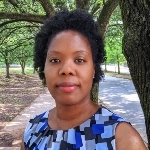
Vernelle A. A. Noel is an Assistant Professor of Computational Design at Carnegie Mellon University and director of the Situated Computation + Design Lab. With a background in architecture, art, and design, Dr. Noel investigates embodied and technological practices, the built environment, and their societal intersections to create new frameworks, tools, and expressions. She has won awards from the Graham Foundation and the Mozilla Foundation. Dr. Noel is also the recipient of the DigitalFUTURES Young Award for exceptional research and scholarship in the field of critical computational design. She has a TEDx Talk titled The Power of Making.

Kimberly Lyle is an artist and assistant professor of Sculpture and Technologies at the University of Georgia. She received an MFA in Intermedia from Arizona State University and a BA in Psychology and Studio Art. Her work challenges the social values historically embedded in emerging technologies and explores how they affect our relationship with the natural world. Lyle is the recipient of fellowships and residencies at Sculpture Space, Mildred’s Lane, Elsewhere Museum, Signal Culture, and the Vermont Studio Center. Her work has been featured in symposia such as ISEA (Gwangju, Korea); Flux Factory (NYC); International Conference on Contemporary Cast Iron Art (Berlin, Germany); Tangible, Embedded and Embodied Interaction Conference (Tempe, AZ).

Lillian-Yvonne Bertram is an African American writer, poet, artist, and educator who works at the intersection of computation, AI, race, and gender. They direct the MFA in creative writing program at the University of Maryland and are a 2024 Foundation for Contemporary Arts poetry grant recipient. Dr. Bertram holds a PhD in Literature & Creative Writing from the creative writing program at the University of Utah. They are the author of several poetry collections, including Negative Money (Soft Skull, 2023) and Travesty Generator (Noemi Press, 2019), winner of the 2018 Noemi Press Poetry Prize, and a finalist for the National Poetry Series. Their honors include a 2017 Harvard University Woodberry Poetry Room Creative Grant and a 2014 National Endowment for the Arts Poetry Fellowship.
Between 1880 and 1915, nearly sixty Protestant Christian training schools opened as part of a general effort to equip lay people (not clergy) for city and foreign missions. Not only were these training schools responding to churches’ expanding global outreach but also the critical needs that accompanied the rapid urbanization of U.S. cities and the influx of immigrants. When Lucy Rider Meyer established the Chicago Training School for Home and Foreign Missions in 1885, she was at the front of this educational movement. The Chicago Training School became a launchpad for additional schools, institutions, and efforts including the deaconess vocation for women. In this presentation, Dr. Lisa Shaver, who is currently completing a rhetorical biography on Lucy Rider Meyer, will introduce Rider Meyer and discuss her role in promoting training schools for women. Of local interest, the training school movement included the Kansas City National Training School (1899-1964) and Scarritt Bible and Training School, which opened in Kansas City in 1887 and moved to Nashville in 1924.
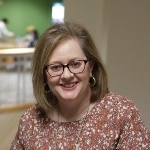
A professor of English at Baylor University, Dr. Lisa Shaver teaches courses in rhetoric and professional writing. Her research interests include women's rhetoric, history of rhetoric, writing across the curriculum, professional writing, and literacy studies. Her work has appeared in College English, Rhetoric Review, and the Journal of Business and Technical Communication. Shaver is the author of Beyond the Pulpit: Women's Rhetorical Roles in the Antebellum Religious Press (U of Pittsburgh Press, 2012) and Reforming Women: The Rhetorical Tactics of the American Female Moral Reform Society, 1834-1854 (U of Pittsburgh Press, 2019).

Join The National Museum of Toys and Miniatures for the Black Dolls Symposium keynote speaker Dr. Tiya Miles, Michael Garvey Professor of History and Radcliffe Alumnae Professor at Harvard University. Keynote Lecture by Tiya Miles from 6-7 p.m., with book sale and signing from 7-8 p.m.
Tiya Miles is the author of eight books, including four prize-winning histories about race and slavery in the American past. Her latest work is the biography Night Flyer: Harriet Tubman and the Faith Dreams of a Free People. Her 2021 National Book Award winner, All That She Carried: The Journey of Ashley’s Sack, a Black Family Keepsake, was a New York Times bestseller that won eleven historical and literary prizes, including the Cundill History Prize and the Frederick Douglass Prize. All That She Carried was named A Best Book of the Year by The New York Times, The Washington Post, The Boston Globe, The Atlanta-Journal Constitution, NPR, Publisher’s Weekly, The Atlantic, Time, and more. Her other nonfiction works include Wild Girls: How the Outdoors Shaped the Women Who Challenged a Nation, The Dawn of Detroit, Tales from the Haunted South, The House on Diamond Hill, and Ties That Bind. Miles publishes essays and reviews in The New York Times, The Boston Globe, The Atlantic, The New York Review of Books, and other media outlets, and she is the author of the time-bridge novel, The Cherokee Rose, a ghost story set in the plantation South. She has consulted with colleagues at historic sites and museums on representations of slavery, African American material culture, and the Black-Indigenous intertwined past, including, most recently, the Fabric of a Nation quilt exhibition at the Museum of Fine Arts in Boston. Her work has been supported by a MacArthur Foundation “Genius” Award, the Mellon Foundation, the National Endowment for the Humanities, and the Guggenheim Foundation. Miles was born and raised in Cincinnati, Ohio, and she is currently the Michael Garvey Professor of History and Radcliffe Alumnae Professor at Harvard University.
In 1934, education philosopher John Dewey stipulated that “Those who are called artists have for their subject-matter the qualities of things of direct experience.” This talk explores whether Dewey's argument still holds, and asks how such claims about the nature of aesthetic experience pertain in a digitally mediated environment. Indeed, so-called immersive technologies that segment reality into actual, augmented, and virtual states of being can contribute to a form of collective forgetting that we are biological bodies inescapably immersed in physical space. These circumstances warrant a reconsideration of twentieth-century modern sculpture as a means of asserting and reclaiming the primacy of direct experience.

Dr. Dawna Schuld is Associate Professor of Modern and Contemporary Art History in the College of Performance, Visualization & Fine Arts, Texas A&M University. She is the author of Minimal Conditions: Light, Space, and Subjectivity (2018) and co-editor, with Cristina Albu of Perception and Agency in Shared Spaces of Contemporary Art (2018). For her research, she has previously been named Dana and David Dornsife Research Fellow at the Huntington Library, Pasadena, California and Senior Research Fellow at the Henry Moore Institute in Leeds.

Jason Aaron, award-winning writer for comic books, will talk about his experience with working both with industry titans, such as Marvel and DC, and with smaller, independent publishers. He will share reflections on changes in the comic book industry and offer advice to artists and writers wishing to enter the field.
Jason Aaron is one of the preeminent creators in the comic book industry today. After winning a Marvel Comics talent search contest in 2001, Aaron quickly became one of Marvel’s preeminent writers, crafting character-defining runs on such titles as Ghost Rider, Wolverine, Punisher, and Doctor Strange. His 2015 Star Wars series for Marvel was the best-selling American comic in over two decades. His critically acclaimed creator-owned work includes the Eisner and Harvey Award-winning Southern Bastards from Image Comics and the New York Times best-selling Scalped from Vertigo Comics. Aaron is also the author of the recently launched Once Upon a Time at the End of the World from BOOM!.
